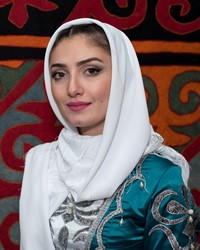Karachay in Türkiye (Turkey)

Photo Source:
Anonymous
|
Send Joshua Project a map of this people group.
|
| People Name: | Karachay |
| Country: | Türkiye (Turkey) |
| 10/40 Window: | Yes |
| Population: | 22,000 |
| World Population: | 488,800 |
| Primary Language: | Karachay-Balkar |
| Primary Religion: | Islam |
| Christian Adherents: | 0.00 % |
| Evangelicals: | 0.00 % |
| Scripture: | New Testament |
| Ministry Resources: | Yes |
| Jesus Film: | Yes |
| Audio Recordings: | Yes |
| People Cluster: | Caucasus |
| Affinity Bloc: | Eurasian Peoples |
| Progress Level: |
|
Introduction / History
Over the past 600 years the Karachay people have experienced life much like a grape placed in a wine press. Formerly part of the once mighty Alan Empire (nominally Christian), the Karachay were defeated in the 14th Century and forcibly converted to Islam by the Turko-Mongol invader Timur. Conquered again in the 19th Century by Russian czarist imperialism, the Karachay people are all too familiar with distress brought about by defeat at the hands of invading nations. During World War II they were swallowed up by the German advance through the Caucasus, only to be re-conquered by Stalin's Soviets shortly thereafter. Due to their "acceptance" of German rule, Stalin then deported the Karachay from their Caucasus homeland to remote parts of Central Asia in 1943. Despite 35 percent of their population dying during the forced relocation, many Karachay have returned to their homeland and have begun repopulating their home area in the Russian province of Karachay-Cherkessia.
The Karachays had large migrations to Turkey in 1886 and 1905. Smaller numbers of the Karachay people are in neighboring countries: Turkey, Kyrgyzstan and Kazakhstan.
What Are Their Lives Like?
The Karachay have preserved much of their heritage due to their Islamic cultural identity and their clan-organized communities, called Tukhum. Fiercely loyal within their Tukhum, Karachay have maintained strong family and cultural traditions best observed in weddings, funerals and over-the-top hospitality toward guests. Nevertheless, realizing population growth and retaining cultural identifiers have not changed the Karachay's position on the global stage, or the state of well-being within their society. Karachay culture, on the one hand, is devoted to 'duty'—but, on the other hand, is plagued by cycles of vengeance, corruption and male drunkenness. Karachay Islamic traditions are a largely "graceless" dynamic, with no clear understanding of forgiving grace and no indwelling Holy Spirit to revitalize.
What Are Their Beliefs?
At present there are less than 50 known Karachay followers of Jesus and only one evangelical church. The New Testament and Psalms in the Karachay language was completed in the 1990s.
Prayer Points
Pray that the Karachay New Testament and Psalms will spread throughout the culture to open hearts.
Pray that in their distress the Karachay will turn to the Lord Jesus, not for political power, but for spiritual deliverance from the devastations of sin and past suffering.
Pray that Jesus followers will multiply as joyful lives are modeled by believers, and that numerous churches will be firmly established as the body of Christ grows amongst the Karachay in both Russia and Turkey.
Pray for men and women of peace in each Karachay town/village, to be keys to welcoming the love of God, the grace of Jesus, and the power of the Holy Spirit into each community in the years ahead.
Pray that the love of God will continue to 'disturb' the Karachai people, inviting them away from sin and judgment and toward the marvelous grace of Jesus and the regenerating power of the Holy Spirit. Pray that the beauty of Karachai culture will bloom as the Fruit of the Spirit enlivens the historical richness of these people.